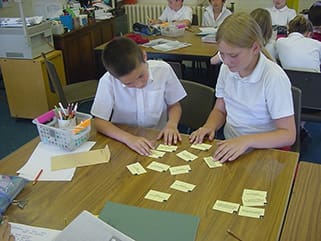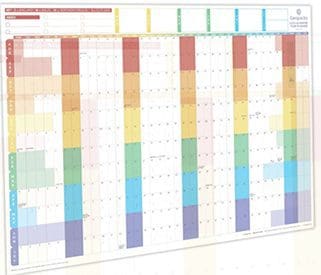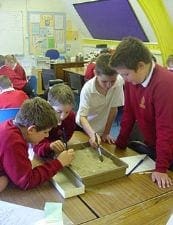Leading History
Interviewing pupils
Much has been written in recent years about the value of listening to the pupils’ voice, not least in terms…
Read MoreWhat to look for when evaluating the quality of history in your school – KS2
Evaluating the quality of history in your school involves examining curriculum breadth, teaching effectiveness, pupil engagement, and progression in historical…
Read MoreReview of 2025 Historical Association survey
In addition to reading the OFSTED Lead Inspectors’ reports, which are available online, one of the ways of getting a…
Read MoreGetting your priorities right at the start of the year – KS2
September is always a good time to think through what you should be doing as history leader now that you’ve…
Read MoreLeading history: a year in the life of a primary history leader
September Ensure that relevant records about attainment in history have been passed to next year’s teacher. Re-issue long term skills…
Read MoreKeeping up-to-date with developments in primary history – February 2023
Every few years, the Primary wing of the Historical Association carry out a survey of primary schools to see what…
Read MoreTaking on history leadership: doing the right things – 10 key steps
Taking on subject leadership can be a daunting prospect, especially if it is your first. When there is so much…
Read More5 key tasks for the history subject leader
Being a history subject leader can often be daunting, especially if you have received very little training and have no…
Read More10 things history leaders need to know about the new OFSTED 2019 Framework
10 things you need to know about leading history 1. Show you are teaching history You will have to show…
Read MoreTop 10 tasks for effective history subject leaders
We all need reminding of what our core purposes are from time to time as we get caught up in…
Read MoreForward planning in history at Key Stage 2
This section ties in with the others on prioritising and monitoring and the message is basically the same. You need…
Read MorePrioritising your work as history leader
When there is so little non-contact time to lead history, it is crucial that you spend your time wisely. This…
Read MoreMonitoring in history at Key Stage 2
You will, at some stage, need to monitor standards and the quality of learning in history. The quality of teaching…
Read MoreUsing data to improve history teaching and learning at Key Stage 2
Given that there is no subject-specific data on history at Key Stage 2 this might seem a strange inclusion on…
Read MoreRaising attainment in history at Key Stage 2
The prospect of raising attainment across the whole key stage is quite daunting, especially when you consider how little non-contact…
Read MoreSelf-evaluation in history at Key Stage 2
With the emphasis of school improvement and OFSTED inspection now firmly placed on self-evaluation this has become one of the…
Read MoreDeveloping your staff
Nearly all teachers enjoy teaching history and will want to improve the quality of their own teaching so that children…
Read MorePolicy and vision in Key Stage 2 history
Having seen so many Key Stage 2 history policies that nobody on the staff ever refers to, it seemed pretty…
Read More
 Leading history at key Stage 2 is far from easy. Not only do you have the difficulty of designing that ensures continuity and progression, you also have the issue of teachers seeing history as ‘doing the Tudors’ rather than building up pupils’ understanding of historical concepts and processes. In this section you will find detailed advice on leading history, ranging from promulgating a vision for history and developing your colleagues, to raising attainment.
Leading history at key Stage 2 is far from easy. Not only do you have the difficulty of designing that ensures continuity and progression, you also have the issue of teachers seeing history as ‘doing the Tudors’ rather than building up pupils’ understanding of historical concepts and processes. In this section you will find detailed advice on leading history, ranging from promulgating a vision for history and developing your colleagues, to raising attainment.








